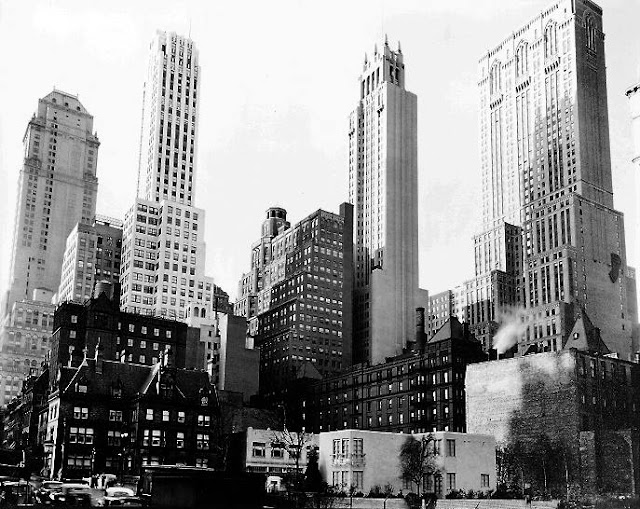Among H.P. Lovecraft's stories, few are as infamous as The Horror at Red Hook, his nightmarish description - written in August 1925 - of a hideous cult of devil worshipers in New York’s poorest districts. It's not hard to see why. Lovecraft wasn't an epigone of toleration at his best of days. And Red Hooks wasn't written on one of those. The story reflects his hatred of urban life in general and of New York especially, a city he moved to after his marriage to Sonia Greene in 1924.
But even if it's racism is vile and the story in itself is rather badly structured (Lovecraft didn't like it much, but then again he was hard on himself in general), it is deeply fascinating. Not the least for it's attempt to portray the city itself as some kind of a monster. It is a thing of decadence and horror, an atavistic return to a pre-civilized condition.
The best description of this condition, though, isn't to be found in Red Hook. It is instead the opening of another story he wrote the same month: He. He is, as stories go, a true failure, but it's first half (it is short), with it's description of the old New York hidden in the new, is still Lovecraft at his best: A writer of architecture - houses and streets and the moods they convey. The opening pages are urbanity-as-horror at its most fascinating:
My coming to New York had been a mistake; for whereas I had looked for poignant wonder and inspiration in the teeming labyrinths of ancient streets that twist endlessly from forgotten courts and squares and waterfronts to courts and squares and waterfronts equally forgotten, and in the Cyclopean modern towers and pinnacles that rise blackly Babylonian under waning moons, I had found instead only a sense of horror and oppression which threatened to master, paralyse, and annihilate me.
The disillusion had been gradual. Coming for the first time upon the town, I had seen it in the sunset from a bridge, majestic above its waters, its incredible peaks and pyramids rising flower-like and delicate from pools of violet mist to play with the flaming golden clouds and the first stars of evening. Then it had lighted up window by window above the shimmering tides where lanterns nodded and glided and deep horns bayed weird harmonies, and itself become a starry firmament of dream, redolent of faery music, and one with the marvels of Carcassonne and Samarcand and El Dorado and all glorious and half-fabulous cities. Shortly afterward I was taken through those antique ways so dear to my fancy—narrow, curving alleys and passages where rows of red Georgian brick blinked with small-paned dormers above pillared doorways that had looked on gilded sedans and panelled coaches—and in the first flush of realisation of these long-wished things I thought I had indeed achieved such treasures as would make me in time a poet.
But success and happiness were not to be. Garish daylight shewed only squalor and alienage and the noxious elephantiasis of climbing, spreading stone where the moon had hinted of loveliness and elder magic; and the throngs of people that seethed through the flume-like streets were squat, swarthy strangers with hardened faces and narrow eyes, shrewd strangers without dreams and without kinship to the scenes about them, who could never mean aught to a blue-eyed man of the old folk, with the love of fair green lanes and white New England village steeples in his heart.
So instead of the poems I had hoped for, there came only a shuddering blankness and ineffable loneliness; and I saw at last a fearful truth which no one had ever dared to breathe before—the unwhisperable secret of secrets—the fact that this city of stone and stridor is not a sentient perpetuation of Old New York as London is of Old London and Paris of Old Paris, but that it is in fact quite dead, its sprawling body imperfectly embalmed and infested with queer animate things which have nothing to do with it as it was in life.
Read the entire story here. It ends like this: "I have gone home to the pure New England lanes up which fragrant sea-winds sweep at evening." As was, of course, H.P. himself to do not that much later.

He ripped my town to shreds haha
SvarSlett